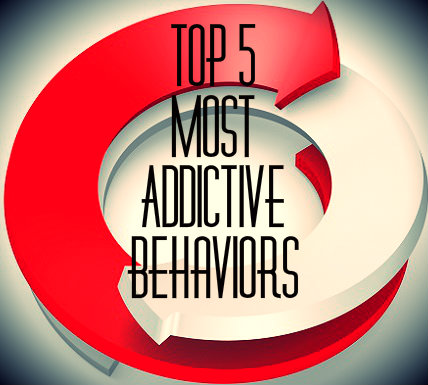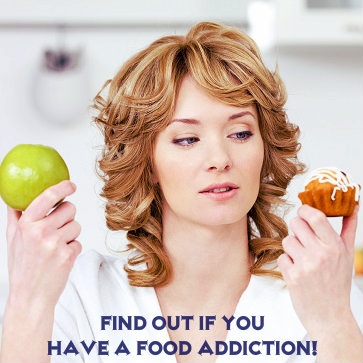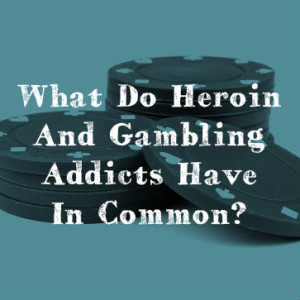14 Oct 2014
Are You Addicted To Love?
Process addictions, also known as behavioral addictions, don’t always get the same kind of attention as chemical dependencies, but they can be just as serious. Love addiction, which should not be confused with sex addiction, can prevent you from having normal relationships or from ever being satisfied with one. If you are constantly obsessing over one person, a fantasy of your true love or a fantasy relationship, you could be suffering from a love addiction. It’s time to break the cycle.
What Is Love Addiction?
Love addiction is a process addiction. This means that instead of compulsively using a drug or alcohol, you are addicted to a behavior, a feeling or a person. In the case of love addiction you may be addicted to the feelings of infatuation or early love and go through a string of short-term relationships.
 Or you might be addicted to your partner and the way he makes you feel, refusing to break it off even if the relationship takes an unhealthy turn. It could even be platonic love that has you hooked. The bottom line is that you obsess over it. The feelings you get from love, infatuation and fantasy take over your life.
Or you might be addicted to your partner and the way he makes you feel, refusing to break it off even if the relationship takes an unhealthy turn. It could even be platonic love that has you hooked. The bottom line is that you obsess over it. The feelings you get from love, infatuation and fantasy take over your life.
At the root of a love addiction is the idea that another person, either real or imagined, can make your life perfect and love you unconditionally. This idea may result from a past history of being abandoned or not being loved enough. It may be that your parents didn’t meet your needs for love and affection. Now, as an adult, you have low self-esteem and look for validation from an outside source when really you should be your own validation.
How Do I Get Over A Love Addiction?
Love addiction is unhealthy because it means that you place unrealistic expectations on others, you fail to take care of yourself and you fail to develop a healthy relationship of mutual respect and love. If you recognize the signs of love addiction in your actions, thoughts and feelings, it’s time to take action and turn things around. Only then will you learn to love yourself and give yourself the chance to have a real relationship.
Steps To Get Over Love Addiction
Here are some steps to take:
- Stop, analyze and assess – Take a step back from your relationships and really think about your behaviors. Make a list of the ways in which you behave inappropriately in your relationships. Consider how you feel and how you make your partner feel. Also think about past relationships and look for common patterns.
- Take responsibility for your own happiness – As a love addict you rely on someone else to make you happy. You think that you need a perfect partner to make your life complete. This is a mistake. You are the only one who can make you happy. Accept that now and begin to act on this truth.
- Consider therapy – There is a good chance that your obsession with love is related to your past. Working with a therapist can help you come to terms with past relationships and how they have impacted you. Sometimes it takes the assistance of a professional to really heal.
- Be prepared for imperfection – As you feel ready to start up a new relationship be ready for the fact that it won’t be perfect. You can chase a perfect partner your whole life, but you’ll never find him. Prepare yourself to fall in love with someone who is imperfect, but perfect for you.
Breaking the habit of love addiction isn’t easy, but it will make your life infinitely better. Only when you begin to accept and love yourself, and reject the idea of a perfect fantasy partner, will you be ready to enjoy real love.
03 Oct 2014
Top 5 Most Addictive Behaviors
Drugs and alcohol are not the only things that can lead you down the path to a dangerous obsession and addiction. Behaviors can be addictive too. Experts call these behavioral or process addictions and they can be nearly as damaging as a drug addiction or alcoholism.
Most of us will not become obsessed with a behavior or activity to the point of addiction, but none of us are completely risk-free. Learn what the experts say are the most potentially addictive behaviors so that you can avoid getting hooked on them. While you need not avoid these activities entirely, you should be aware that they can lead to addictive behaviors.
Top Behavioral Addictions
Researcher Dr. Reef Karim, a specialist in behavioral addictions, reviewed studies to find which behaviors are the most addictive.
 Gambling – Gambling tops that list. Gambling disorder affects two percent of the population and is the only behavior that gets widespread support as a true behavioral addiction. Much research on problem gambling has been conducted and has found that gamblers experience a high when winning, similar to the experience of drug use. They also experience withdrawal when not gambling, including physical symptoms like headaches and insomnia.
Gambling – Gambling tops that list. Gambling disorder affects two percent of the population and is the only behavior that gets widespread support as a true behavioral addiction. Much research on problem gambling has been conducted and has found that gamblers experience a high when winning, similar to the experience of drug use. They also experience withdrawal when not gambling, including physical symptoms like headaches and insomnia.
- Internet And Gaming – This type of addictive behavior is a recent addition, but a powerful one. Most experts agree that Internet gaming disorder is a real problem for some people and one that is very similar to drug addiction. Much of the evidence for Internet addiction being a real disorder comes from Asia. Young men there in particular have become so obsessed with gaming that they stop eating and neglect all other responsibilities, including the care of children. This level of obsession is similar to what drug addicts experience.
- Sex Addiction – That sex can become addictive is not surprising. The experience activates the reward system in the brain, as do drugs and alcohol. While regular and frequent sex with one partner is not unhealthy, obsessive sexual activities are. Compulsively using pornography, looking for sex with strangers or engaging in exhibition are behaviors that are considered signs of an unhealthy obsession with sexual activities.
- Eating – Food also activates our reward centers, especially foods that are high in fat, sugar or salt. Eating disorders like bulimia and anorexia are dangerous and involve compulsive behaviors, but they are not addictive disorders. Compulsive overeating, on the other hand, shares characteristics with drug and alcohol addiction. Also known as binge eating, this behavior includes obsessing over food. Compulsive eaters tend to spend an unnatural amount of time thinking about food, planning meals, and frenzied eating to the point of getting sick. Between two and four percent of Americans may struggle with binge eating.
- Shopping – Compulsive shopping is controversial among experts. Some think it can be classified as a behavioral addiction, while others are on the fence. More research is needed to clarify, but it seems that buying something you really want activates the reward system in your brain. Developing this obsession is harmful because it can lead to serious financial problems.
There are a number of behaviors that can become obsessive, but these five are the most common. Just like a drug addiction, these behaviors can cause you to engage in them compulsively, ignore your responsibilities, develop withdrawal, experience highs and ultimately even ruin your life. Be aware of the possibility of behavioral addictions and look for signs of obsessions in yourself and those you love so you can get professional help if needed.
Read Our Other Behavioral Addictions Posts
29 Aug 2014
Is My Child Addicted To Gaming?
Kids today have unprecedented access to technology and devices, which can be both positive and negative. Having access to the Internet and using tablets and smartphones can provide a wealth of educational opportunities. The dark side to all this access is the potential for obsessive behaviors. Video games and Internet gaming tend to lead to addictive-like behavior, and it can start early. If you’re wondering if your child spends too much time playing games, learn more about the potential for addiction and how to curb it.
Are Video Games Addictive?
 Experts in the field of addiction have debated the existence of so-called behavioral addictions for years and how they compare to chemical addictions. The latter refers to a “true” addiction to a mind-altering substance like alcohol or illegal drugs. A behavioral addiction is considered to occur when someone exhibits addictive behaviors with respect to anything other than drugs or alcohol. Some of the more common behavioral addictions include gambling, sex or pornography, shopping and eating. Behavioral addictions can cause similar symptoms to chemical addictions, such as withdrawal, lack of control and impulsiveness.
Experts in the field of addiction have debated the existence of so-called behavioral addictions for years and how they compare to chemical addictions. The latter refers to a “true” addiction to a mind-altering substance like alcohol or illegal drugs. A behavioral addiction is considered to occur when someone exhibits addictive behaviors with respect to anything other than drugs or alcohol. Some of the more common behavioral addictions include gambling, sex or pornography, shopping and eating. Behavioral addictions can cause similar symptoms to chemical addictions, such as withdrawal, lack of control and impulsiveness.
Internet and technology-related behavioral addictions are naturally on the rise as more people have access to the devices that enable the problem. Gaming can become a behavioral addiction, although some experts might refer to it as something different, such as Internet gaming disorder or an impulse control disorder. In fact, one study has reported that as many as one in ten children show signs of addiction when it comes to playing video games.
What Are The Signs Of A Video Game Addiction?
So how can you tell if your child is at risk or already showing signs of addictive behaviors? The main criterion is that the gaming is interfering with a child’s life. This could mean that your child’s gaming is causing his grades to deteriorate because he no longer has time to study. It could be that he spends so much time playing games that he doesn’t interact socially with his peers outside of school. It could also mean that he has damaged relationships with family members because of his habit. Other signs of addictive behavior include a preoccupation with gaming, thinking about it constantly, playing whenever possible, and feeling restless or irritable when not playing.
My Kid May Be Addicted To Gaming, Now What?
If you see signs in your child that he may be addicted to gaming, try to cut back the amount of time he spends playing. Cutting him off entirely doesn’t make sense, but you should be able to limit his time by setting certain gaming hours. It is also important that you model responsible technology use because actions speak louder than words. Insist that everyone in the family turn off devices at specific times of day, such as over dinner or when studying. Seeing everyone cut back on technology will help your child to be able to do the same.
When you try to cut back and find that your child just can’t do it, or that his responses to the limitations are irrational and severe, you may need some professional help. The addiction itself may not be the root of the problem either. Some experts have found that, as with drug and alcohol addiction, compulsive gaming often masks underlying mental health issues like depression or anxiety disorders. If you are concerned about your child’s use of video games and his overall mental health, see your pediatrician for referrals. You may have to get an evaluation and a diagnosis from an addiction specialist to truly get your child the help he needs.
25 Jun 2014
Are You Addicted To Tanning?
Tanning addiction is an example of what experts term a process or behavioral addiction. Unlike drug or alcohol addiction, there is no substance consumed; yet many of the symptoms overlap. Going for a tan, whether at a salon with artificially produced light or at the beach and under the sun, poses many risks, not least of which is skin cancer. Getting a little sun is healthy, but becoming obsessive about getting that golden glow could prove fatal.
What Is Tanning Addiction?
 A process addiction is one that involves a behavior rather than a substance. People can become addicted to gambling, shopping, sex or even getting a tan. Research indicates that tanning addiction is a real phenomenon and one that mostly impacts younger women. What happens when you tan that can lead to an addiction is the same thing that happens when someone takes a hit of a drug, or wins at the blackjack table: you feel good.
A process addiction is one that involves a behavior rather than a substance. People can become addicted to gambling, shopping, sex or even getting a tan. Research indicates that tanning addiction is a real phenomenon and one that mostly impacts younger women. What happens when you tan that can lead to an addiction is the same thing that happens when someone takes a hit of a drug, or wins at the blackjack table: you feel good.
Exposure to both sunlight and the artificial light of a tanning bed produces a pleasurable release of endorphins in the body. Until it becomes uncomfortably hot, being out in the sun simply feels good. It’s also a powerful mood booster. As with substance abuse, some people are susceptible to abusing the feel-good sensation of tanning. They seek out the good feeling, as well as what they perceive to be an attractive tan, over and over again. Research shows that people addicted to tanning experience many of the same physical and psychological symptoms as alcoholics and drug addicts.
How Do I Know If I’m Addicted To Tanning?
A good way to check if you might be addicted to tanning is to look at those symptoms and signs of addiction that are common to both chemical and behavioral addictions. One of the first signs of an addiction of any kind is tolerance. This means that you need to spend more and more time under the tanning lights in order to get the pleasurable feeling you are seeking. For example, you may have started out tanning once a week, but then climbed to two or three times a week and then every day.
Another important sign of addiction is withdrawal. When you have to skip a tanning session for any reason, do you feel anxious or upset? If so, your body and mind are experiencing withdrawal from your “drug.” Other symptoms of addiction include obsessive thoughts and actions. Are you constantly thinking about getting your next fix? Has your life begun to revolve around tanning? Addiction also causes you to neglect your other activities. Have you let your work or academics slide? Are your relationships suffering? If you recognize these signs in yourself, you may have a problem.
What Are The Risks Of Tanning Too Much?
Over-tanning is very dangerous. The risk of addiction is serious because it can impact your life in many negative ways even though you are not a drug user or drinker. The bigger danger, however, is the effect of the tanning on your skin and your health. Melanoma, a type of skin cancer, is the deadliest form of cancer in the U.S. and the number one most preventable factor in developing it is the use of tanning beds.
If you feel that you have a problem with tanning, cut back or stop altogether. If you find that you can’t, turn to an addiction counselor experienced in working with process addictions. With the help of a professional you can kick the habit, and in doing so you just might save your life.
If you are overweight or obese you may wonder why you can’t seem to control your weight. Other people seemingly resist the urge to overeat and manage to get out and get exercise to stay at a healthy weight. Why can’t you? Is it a simple matter of willpower, or is there something else going on? The concept of addiction has been applied to food and obesity. Learn more about addiction to find out if your behaviors toward food may resemble those of an addict. And if they do, you can get help.
What Characterizes An Addiction?
 Addiction is a complicated issue and experts have debated its definition for years. Traditionally, addiction has referred only to substances, like drugs and alcohol. These substances change the brain in ways that makes it very difficult to stop using them. Characteristics of addiction include intense craving for the substance, a loss of control when using it, and the inability to stop using even in the face of negative consequences.
Addiction is a complicated issue and experts have debated its definition for years. Traditionally, addiction has referred only to substances, like drugs and alcohol. These substances change the brain in ways that makes it very difficult to stop using them. Characteristics of addiction include intense craving for the substance, a loss of control when using it, and the inability to stop using even in the face of negative consequences.
More recently, many experts have felt that it was important to include behaviors and activities in the category of addiction. These types of addictions are called process or behavioral addictions and remain distinct from chemical addictions. Some of the behavioral addictions that get the most attention include gambling addiction, sex addiction, and compulsive shopping. Any behavior or action has the potential to become a process addiction for any person. This includes eating.
What Are Addictive Behaviors?
What chemical and process addictions have in common are the behaviors exhibited by the addicted person. For instance, someone who is an alcoholic feels an overwhelming urge to drink and be drunk nearly all the time. He also loses control when drinking. He may start out one evening with a plan to have just two drinks, but end up having 10 instead. He also continues to drink in spite of the harm it is causing to his health, his relationships and his work.
If you have a process addiction you may express similar behaviors. For instance, compulsive gamblers are always drawn to gamble, whether in casinos, online or at the track. They lose control and gamble too much money. In spite of the huge losses they experience, they cannot stop gambling. The behaviors of the alcoholic and the compulsive gambler are very similar.
Do I Have A Food Addiction?
For many addiction experts, food addiction is a real problem. Consider the three characteristics of addiction: do you feel a strong and constant pull to eat? When you eat do you often lose control and eat too much in one sitting? Do you continue to eat too much even though you know that it is harming your health and that you should lose weight? If you can answer yes to these you may have a process addiction.
To know for sure just how serious your addictive behaviors are you should seek an expert opinion. There is no absolute standard for diagnosing a food addiction, but a counselor experienced in helping people with process addictions can recognize the signs in your behaviors. A therapist can also determine if your issue is a food addiction or an eating disorder.
How Can I Get Help For A Food Addiction?
There are many counselors and therapists available who understand process addictions and who are experienced in helping people like you. A trained therapist can help you understand why you overeat and can help you make constructive changes in your life. If you are unsure where to turn to find someone, see your doctors for resources. You will never regret getting help and getting your life and your health back on track.
Read More How Much Can Diet And Exercise Really Help In Recovery?
Substance addiction, which stems from the improper use of drugs or alcohol, is the classic model of physical addiction. It contrasts with behavioral addiction, a newly acknowledged form of addiction not centered on substance use. In a study published in January 2014 in the journal Drug and Alcohol Dependence, researchers from the U.S. and China compared the brain effects of one particular form of substance addiction—heroin addiction—to the brain effects of gambling disorder, the only officially recognized form of behavioral addiction in the U.S. These researchers concluded that the two conditions produce differing but overlapping brain changes.
Substance Use Disorders
Substance addiction is one of the two major components of an officially diagnosable condition called substance use disorder (which also includes serious, non-addicted substance abuse). People affected by this form of addiction experience long-term changes in their brains’ chemical status brought about by the repeated use of excessive amounts of alcohol or any one of a range of drugs or medications.
These changes occur because the brain receives enough exposure to alcohol, drugs or addictive medications to begin treating this exposure as the norm rather than the exception.
Symptoms Of Substance Addiction
 Strong and recurring urge to drink or use drugs
Strong and recurring urge to drink or use drugs- Corresponding inability to voluntarily limit substance intake
- Increasing tolerance to the effects of drugs or alcoho
- Withdrawal symptoms when the “normal” amount of alcohol or drugs is unavailable
- Destructive pattern of behavior focused primarily on substance use
Similarities Between Substance Addiction And Behavioral Addiction
Behavioral addiction produces a series of changes that mirror many key aspects of substance addiction. However, instead of stemming from excessive drug or alcohol intake, this form of addiction stems from excessive reliance on (or participation in) a specific activity.
- Strong and recurring urge to participate in a given behavior
- Inability to voluntarily limit that behavior
- Establishment of a destructive pattern of conduct focused on the behavior in question
Like substance addiction, behavioral addiction also creates long-term changes in the way the brain does its job. The American Psychiatric Association includes both substance addiction and behavioral addiction in a large grouping of conditions known collectively as substance-related and addictive disorders. There are a number of officially recognized substance-related disorders; however, as of 2014, gambling disorder (problem gambling, compulsive gambling, pathological gambling) is the only recognized form of addictive disorder.
Comparing The Brain Effects On Heroin Addiction Vs. Gambling Disorders
In the study published in Drug and Alcohol Dependence, researchers from the University of Southern California, the Chinese Academy of Sciences and China’s Guiyang Medical University conducted testing designed to compare the brain impairment of heroin addiction to the brain impairment of gambling disorder (identified in the study as pathological gambling).
Participants in this testing included 58 heroin addicts maintaining abstinence from drug use, 60 people diagnosed with gambling disorder and 60 generally healthy people unaffected by either heroin addiction or gambling disorder. Each of these participants took part in a test that assesses a critical form of short-term memory called working memory, as well as a separate test that assesses the ability to make decisions and control impulsive behaviors. The researchers compared the testing results of both the heroin addicts and the compulsive gamblers to the testing results of the healthy study participants.
They concluded that, compared to healthy people, heroin addicts experience a significant decline in their ability to use working memory, make decisions and control their actions. People affected by gambling disorder also experience problems making decisions and controlling their behaviors; however, they do not experience problems with their working memory. In addition, the researchers found that the brain impairments associated with heroin addiction grow worse over time. In contrast, the brain impairments associated with gambling disorder do not appear to grow worse or have a greater impact on people heavily addicted to gambling.
Behavioral Actions And Memory Problem Differences In Addiction
Based on their findings, the authors of the study published in Drug and Alcohol Dependence concluded that decision-making and impulse control problems appear to be central features of addiction, whether that addiction stems from a substance or a behavior. Memory problems, on the other hand, appear to be specific to substance addiction (or, at the least, heroin addiction). Further research will be needed to determine if other forms of behavioral addiction not officially recognized in the U.S. (such as sex addiction and Internet addiction) produce the same changes in brain function as gambling disorder.
Read More About The Importance Of Identifying Signs Of Substance Abuse In Bipolar Patients


